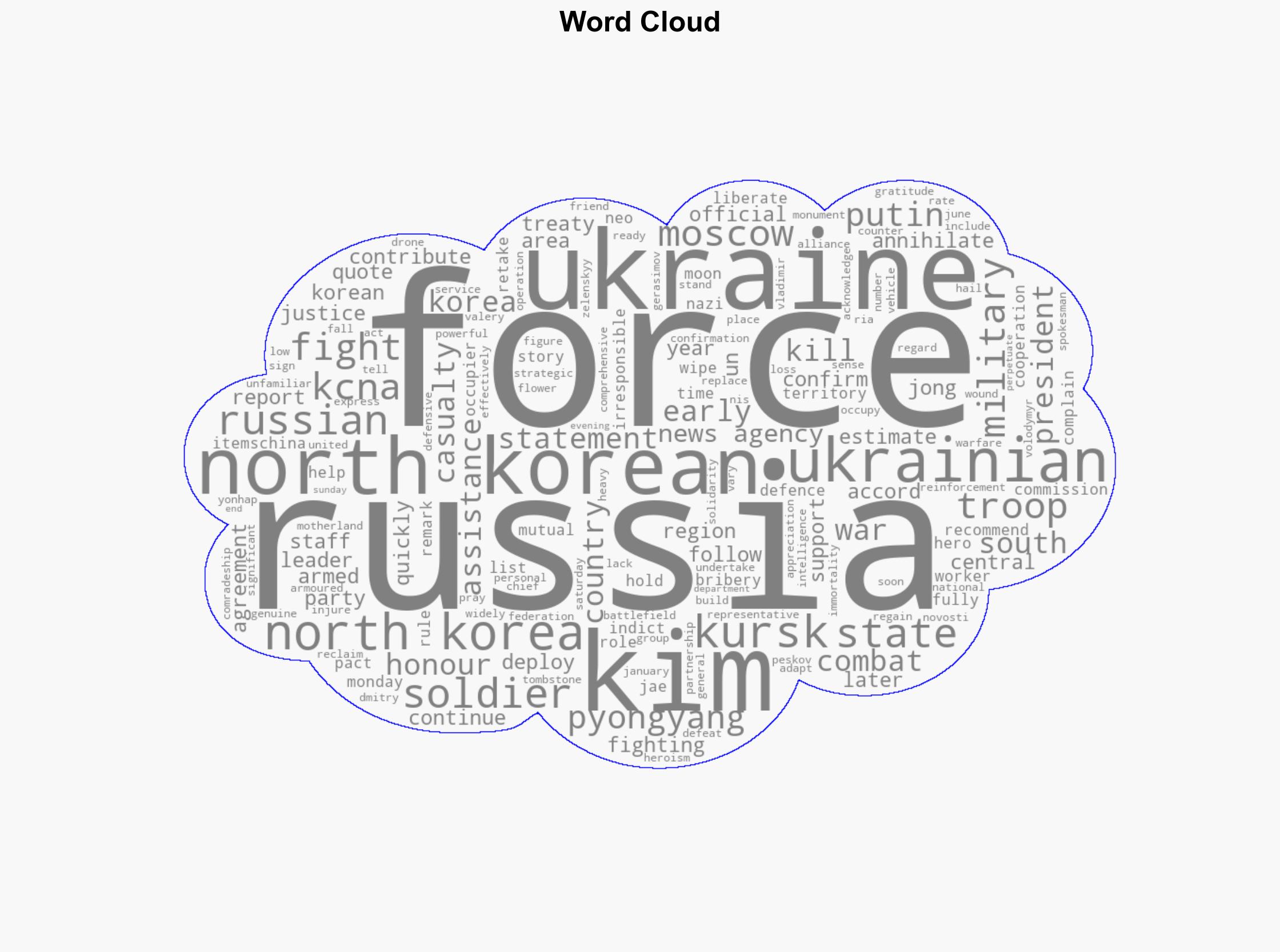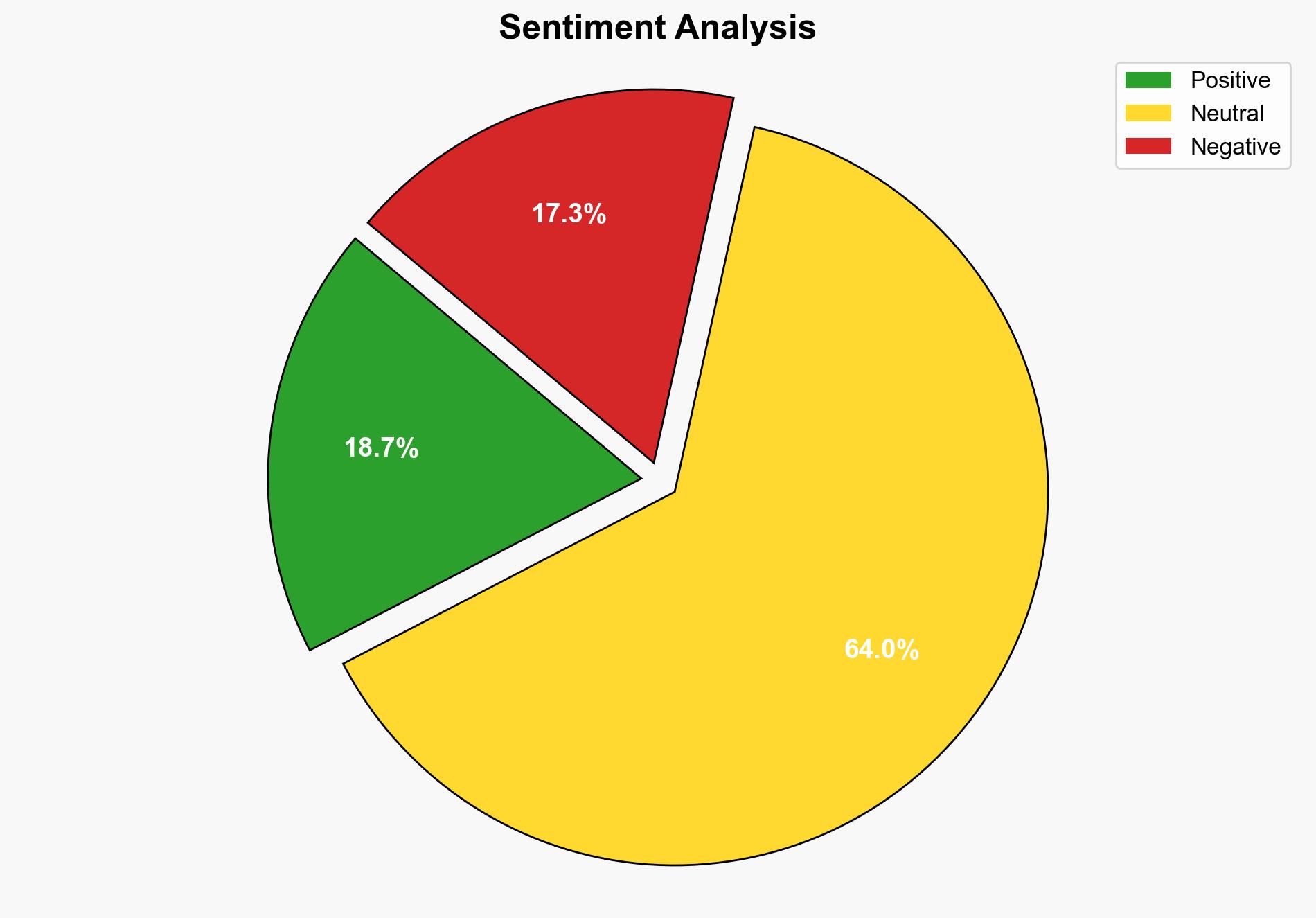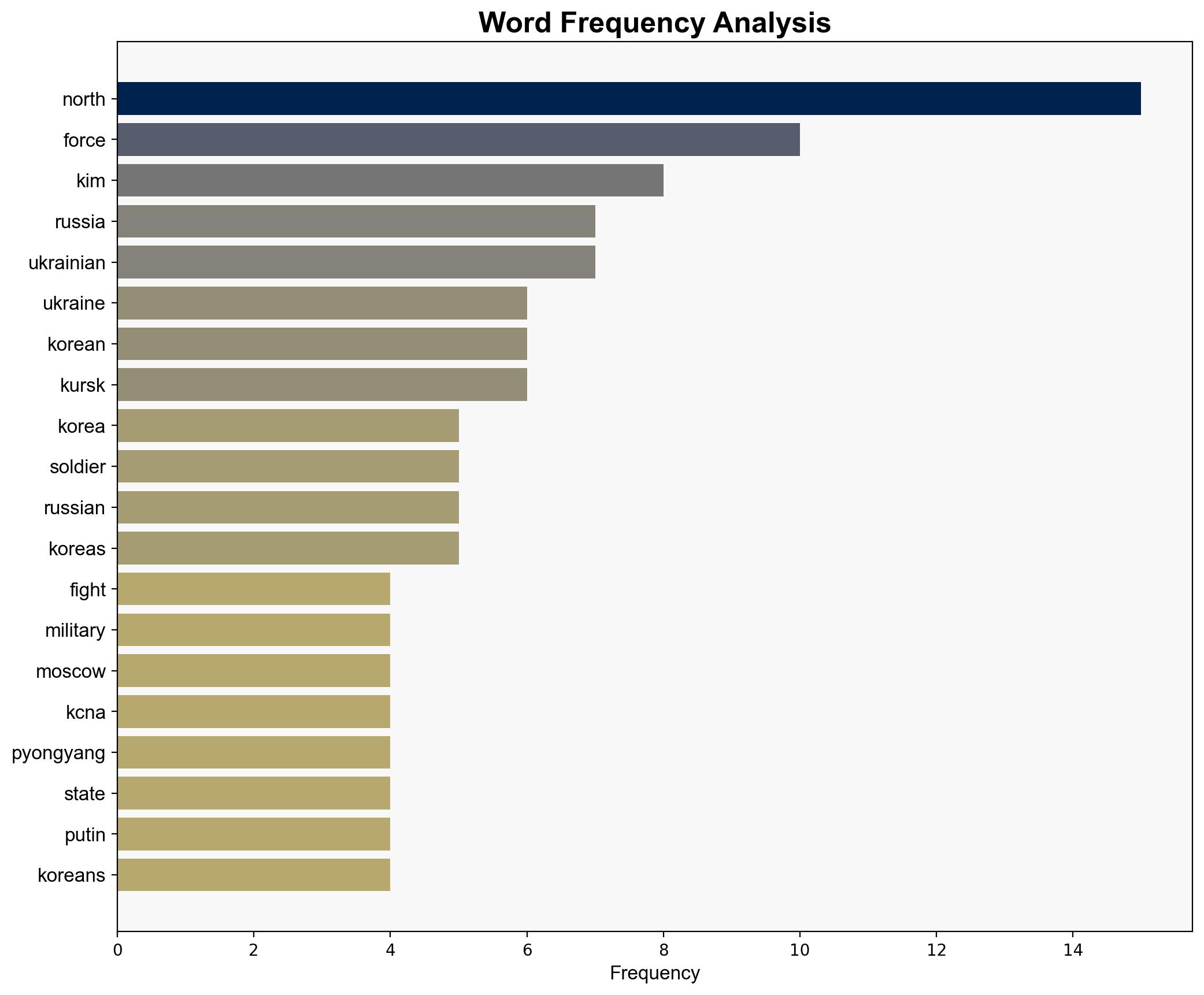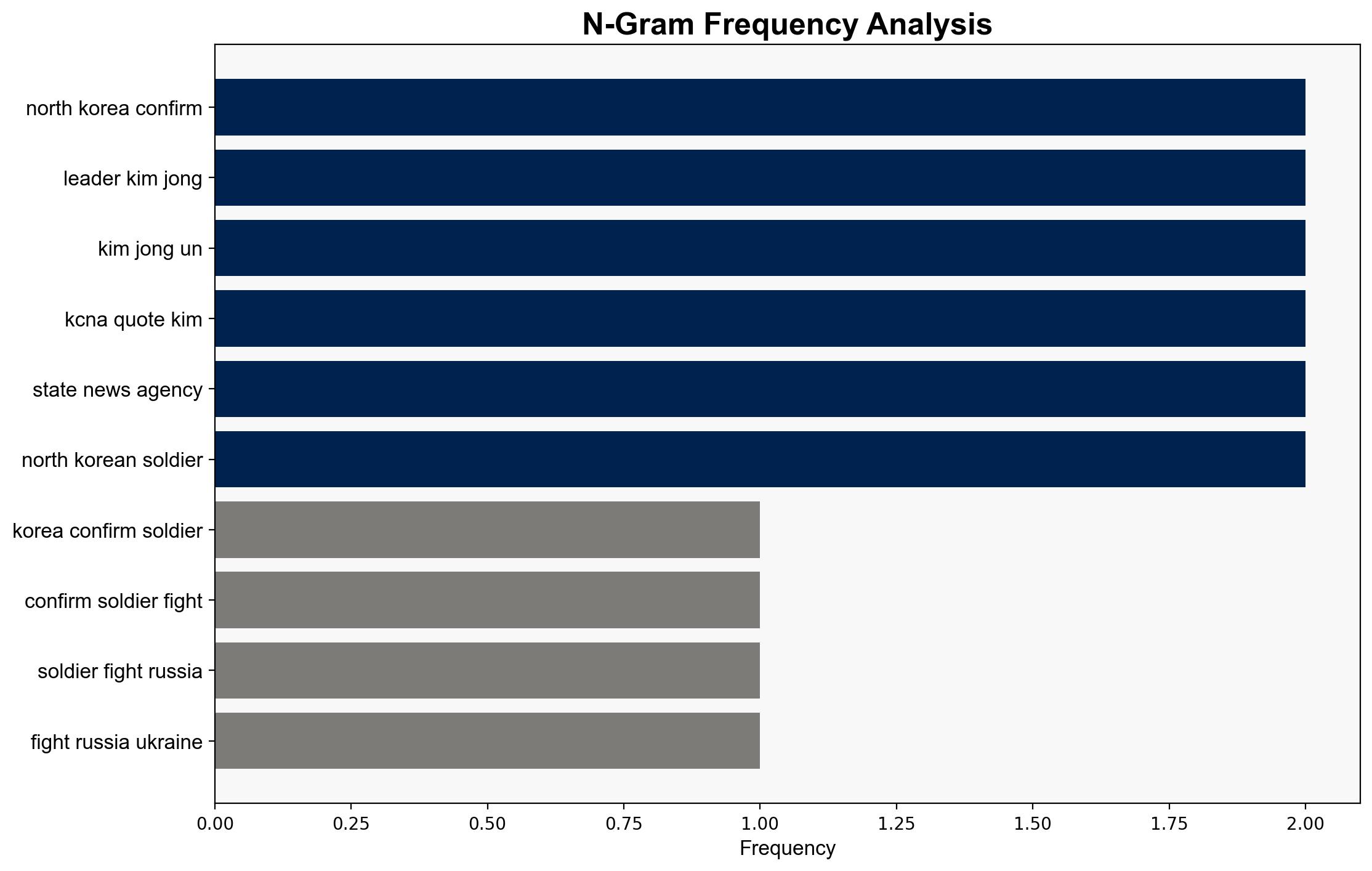North Korea confirms soldiers sent to fight with Russia against Ukraine – Al Jazeera English
Published on: 2025-04-28
Intelligence Report: North Korea Confirms Soldiers Sent to Fight with Russia Against Ukraine – Al Jazeera English
1. BLUF (Bottom Line Up Front)
North Korea has confirmed the deployment of its soldiers to support Russian military operations against Ukraine. This development signifies a deepening military alliance between North Korea and Russia, potentially altering the strategic balance in the region. The confirmation raises concerns about increased military cooperation and the potential for further escalation in the conflict. It is recommended that government agencies monitor this alliance closely and prepare for possible shifts in geopolitical dynamics.
2. Detailed Analysis
The following structured analytic techniques have been applied to ensure methodological consistency:
Scenario Analysis
The deployment of North Korean troops could lead to several scenarios: increased military effectiveness for Russian forces, potential retaliatory measures by Ukraine and its allies, or a broader regional conflict involving additional state actors.
Key Assumptions Check
It is assumed that North Korea’s involvement is primarily driven by strategic interests and mutual defense agreements with Russia. This assumption should be continuously evaluated against emerging intelligence to ensure accurate threat assessments.
Indicators Development
Key indicators to monitor include further troop deployments, changes in military tactics, diplomatic communications between North Korea and Russia, and any shifts in international responses or sanctions.
3. Implications and Strategic Risks
The involvement of North Korean troops in the Ukraine conflict introduces new strategic risks, including the potential for increased casualties and heightened tensions with Western nations. This alliance may also embolden other state actors to form similar partnerships, destabilizing the region further. The risk of cyber warfare and economic sanctions as retaliatory measures should also be considered.
4. Recommendations and Outlook
- Enhance intelligence sharing and coordination with allies to monitor developments and anticipate potential escalations.
- Consider diplomatic initiatives to address and de-escalate tensions between involved parties.
- Scenario-based projections suggest that in the best case, diplomatic efforts could lead to a reduction in hostilities. In the worst case, the conflict could expand regionally, involving more state actors. The most likely scenario involves continued military engagement with periodic escalations.
5. Key Individuals and Entities
Kim Jong Un, Vladimir Putin, Dmitry Peskov, Valery Gerasimov, Volodymyr Zelenskyy.
6. Thematic Tags
(‘national security threats, military alliances, regional conflict, geopolitical dynamics’)




